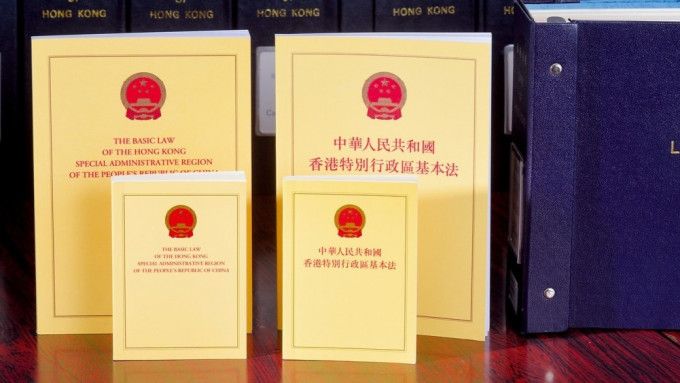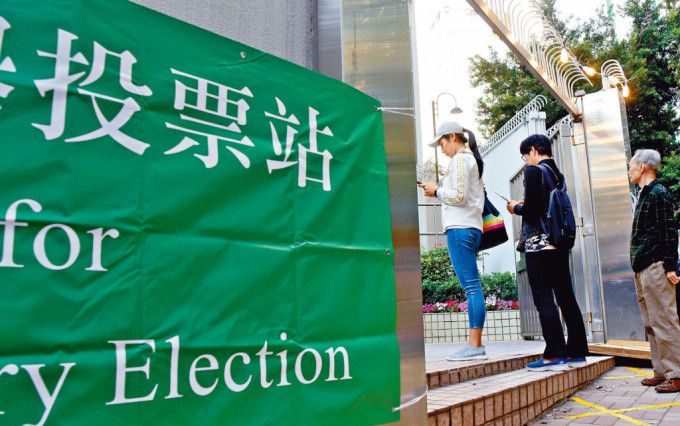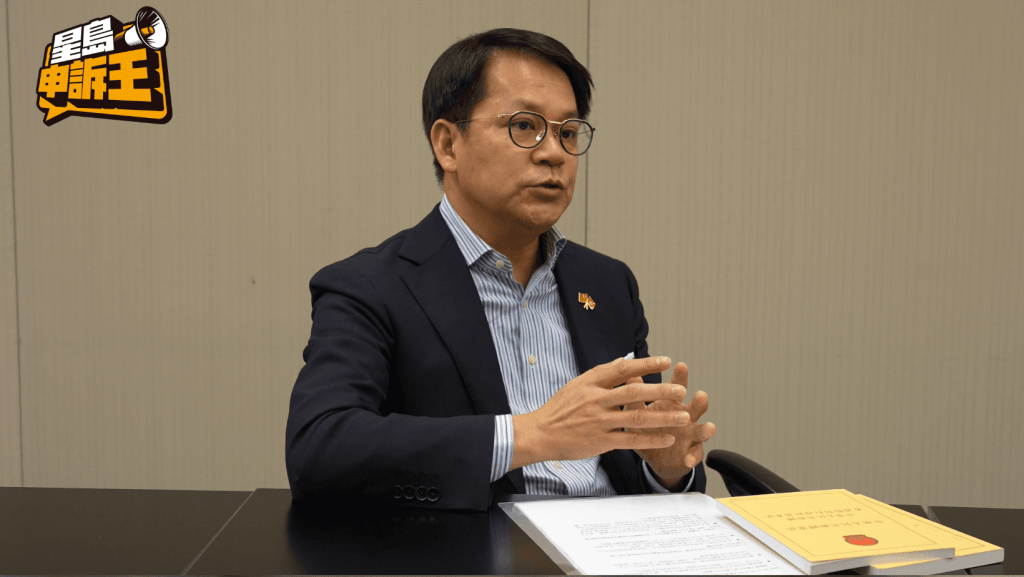Sing Tao Probe | Preserving dignity of national flag, anthem and emblem a legal obligation for Hongkongers
In recent years, the government has been actively promoting the education of the Constitution, the Basic Law and the rule of law. Both the Constitution and the Basic Law are deeply intertwined with legal governance, education, and citizens' daily lives.
In the run-up of Constitution Day on December 4, Sing Tao Probe interviewed lawmakers and educators to explain the relationship between the Constitution and the Basic Law.
The Constitution is fundamental law of state
Hong Kong Basic Law Committee member Simon Hoey Lee stated that the Constitution was officially adopted and promulgated on December 4, 1982, which is why December 4 was designated as the national Constitution Day.
He pointed out that the Constitution consists of four chapters and 143 articles, covering various aspects including: state structure, rights and duties of citizens and government composition.

Regarding the relationship between the Constitution and the Basic Law, Lee likened the Constitution to "Hong Kong SAR's birth certificate." He explained that Article 31 of the Constitution authorizes the state to establish special administrative regions (SARs) when necessary.
The constitutional provisions serve as the legal basis, and upon establishing an SAR, the state may regulate all matters within it, including residents' lives, social development, economic structure, and government composition, through enacted laws.
He emphasized that the implementation of one country, two systems in the SAR and the enactment of the Basic Law all originate from the Constitution.

As the Hong Kong National Security Law came into effect in 2020, what is its relationship between the Constitution and the Basic Law?
Lee explained that the Constitution serves as the fundamental law of the state, while the Basic Law was formulated on the basis of the Constitution. As for the National Security Law, it was established by the Standing Committee of the National People's Congress under the authorization of the National People's Congress to address national security matters in Hong Kong.
The law was subsequently incorporated into Annex III of the Basic Law and implemented in Hong Kong, enabling the special administrative region to enforce this national legislation while demonstrating the inherent flexibility of the Basic Law framework.
Preserving the dignity of the national flag, anthem, emblem is a legal obligation for residents.
The Constitution and the Basic Law are closely connected to citizens' daily lives. For instance, understanding how to preserve the dignity of the national flag, anthem, and emblem is a legal obligation for Hong Kong residents.
Wong Kam-leung, a primary school principal and chairman of the Hong Kong Federation of Education Workers, emphasized that the national anthem is a symbol and sign of the country, and it should be valued and respected.
He explained that schools have incorporated the national anthem into national education, teaching students not only how to sing it but also the proper etiquette when it is played.
Students also learn about the anthem's historical significance and key points to observe. Through flag-raising ceremonies and singing of the national anthem, schools aim to strengthen students' sense of national identity.






Since preserving the dignity of the national anthem is a legal obligation for residents, some have expressed concerns about potential unintentional violations.
Wong addressed these worries by explaining that if individual students fail to meet school requirements during flag-raising or anthem-singing ceremonies, teachers will employ educational methods to guide them appropriately, and there is no need to fear legal consequences or criminal liability.
Regarding unintentionally singing off-key or with incorrect pronunciation during the anthem, Wong clarified that those behaviors do not breach the law. What matters most is showing respect for the nation while singing. He said other understandable circumstances include failing to sing the national anthem due to a sore throat.
Citizens enjoy fundamental rights while bearing obligation to abide by law
Regarding the protection of citizens' fundamental rights under the Basic Law, Gary Chan Hak-kan, who chairs the Legislative Council's security panel, pointed out that Articles 25 to 29 of the Basic Law fully safeguard citizens' life, property safety and personal freedom. Citizens cannot be detained, imprisoned or arrested without due cause. At the same time, the Basic Law also guarantees citizens' rights, including freedom of assembly, association and religious belief. It ensures equality before the law, as well as the right to vote and stand for election.
While citizens enjoy legal rights, they naturally also bear the obligation to comply with law. Chan further explained that Article 42 of the Basic Law stipulates that all Hong Kong residents must observe the laws in force in the SAR, including the National Anthem Ordinance, the National Flag and National Emblem Ordinance, the Hong Kong National Security Law, as well as the recently enacted Safeguarding National Security Ordinance that enacts Article 23 of the Basic Law.
In response to recent discussions about advocations for a relatively more lenient treatment for national security cases, he emphasized that the rule of law constitutes the foundation of Hong Kong's success. The spirit of the rule of law must be accorded paramount importance and should not be compromised due to political considerations or sympathy for individuals, otherwise Hong Kong's legal system and social foundations would completely vanish.



